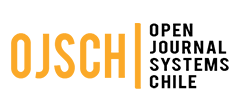INFLUENCE OF ZNCL2 CONCENTRATION ON THE SELECTIVITY OF A ZN(NCS)4 2–-SELECTIVE ELECTRODES AND ITS APPLICATION FOR DETERMINATION SCN− IONS IN INDUSTRIAL SOLUTIONS
- Potentiometry,
- Thiocyanate ions,
- Tetrathiocyanozincate−selective electrode,
- Quaternary ammonium salts
Copyright (c) 2017 Yu V. Matveichuk, E. M. Rakhman’ko

This work is licensed under a Creative Commons Attribution-NonCommercial-ShareAlike 4.0 International License.
Abstract
The influence of the background concentration of ZnCl2 on the selectivity of Zn(NCS)4
2–−SE based on QAS to SCN− is studied. The introduction of ZnCl2 into a solution fixes zinc released from the membrane in the form of thiocyanate complex. A high selectivity of the Zn(NCS)4 2–−SE to SCN− ions is due to the formation of better extractable complexes between zinc and SCN− compared to acidocomplexes of competitive anions. An introduction of 5.0 M ZnCl2 into a solution increases selectivity to SCN− ions by 5 orders of magnitude in the presence of interfering ClO4 − ions and more than 4.5 orders of magnitude in the presence
of interfering NO3 − ions.

References
- A. Shokrollahi, M. Ghaedi, H. Ghaedi, A.H. Kianfar, Int. J. Env. Anal. Chem. 88, 841, (2008).
- J. Ghasemi, R. Amini, A. Afkhami, Anal. Sci. 17, 435, (2001).
- B. Gong, G. Gong, Anal. Chim. Acta 394, 171, (1999).
- G.F. Wang, M.G. Li, Y.C. Gao, B. Fang, Sensors 4, 147, (2004).
- X. Cai, Z. Zhao, Anal. Chim. Acta 212, 43, (1988).
- D. Connolly, L. Barron, B. Paull, J. Chromatogr. B 767, 175, (2002).
- N. Aslan, A. Kenar, O. Atakol, E. Kilic, Erciyes Üniversitesi Fen Bilimleri Enstitüsü Dergisi 25, 237, (2009).
- S.M. Saad Hassan, M.A.M.F. Elmosalamy, Analyst 112, 1709 (1987).
- M.K. Amini, S. Shahrokhian, S. Tangestaninejad, Anal. Chim. Acta 402, 137, (1999).
- M.R. Ganjali, P. Norouzi, F. Faridbod, M.R. Pourjavid, J. Iran. Chem. Soc. 4, 1, (2007).
- Zhi-Qiang Li, Zhao-Yang Wu, Ruo Yuan, Min Ying, Guo-Li Shen, Ru-Qin Yu, Electrochim. Acta 44, 2543, (1999).
- E.M. Rakhman’ko, V.L. Lomako, T.E. Poklonskaya, I.V. Kachanovich, I.E. Serdyukova, J. Anal. Chem. 50, 200, (1995).
- B. Cale, Lab equipment of organic chemistry, Moscow, Mir, 1966.
- Е.B. Оkaev, Vestsi Nat. Akad. Nauk Belarus. Ser. khim. navuk 1, 53 (2005).
- I. Koryta, K. Shtulik, Ion-selective electrodes, Moscow, Mir, 1989.
- A.L. Gulevich, G.I. Gorbatsevich, E.E. Trofimenko, Vestnik BSU. Ser. 2. 3, 8 (2013).
- I.V. Kachanovich, T’yu Van Bien, E.M. Rakhman’ko, J. Inorg. Chem. 39, 347 (1994).
- V.P. Zhivopistsev, E.A. Selezneva, Analytical chemistry of zinc, Moscow, Nauka, 1975.
- S.V. Lomako, R.I. Astapovich, O.V. Nozdrin-Plotnitskaya, T.E. Pavlova, Shi Lei, V.A. Nazarov, E.B. Okaev, E.M. Rakhman’ko, V.V. Egorov, Anal. Chim. Acta. 562, 216 (2006).
- E.M. Rakhman’ko, V.V. Egorov, E.B.Okaev, E.V. Pomelenok, Dokl. Nat. Acad. Nauk 47, 50 (2003).
- E.M. Rakhman’ko, Yu.V. Matveichuk, V.V. Yasinetsky, L.S. Stanishevsky, J. Anal. Chem. 68, 355 (2013).
- Yu.Yu. Lur’e, Handbook of analytical chemistry, Moscow, Khimia, 1989.
- V.A. Rabinovich, Z.Ya. Havin, Short chemical handbook, St.-Pet., Khimia, 1994.
- О.D. Kurilenko, Short handbook of chemistry, Kiev, Naukova Dumka, 1974.
- K.B. Yatsimirsky, V.P. Vasiliev, Instability constants of complex compounds, Moscow, AN USSR, 1959.
- W.J. Williams, Determination of anions, Moscow, Khimia, 1982.


